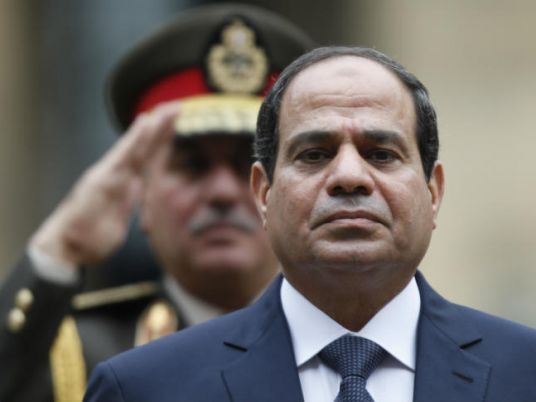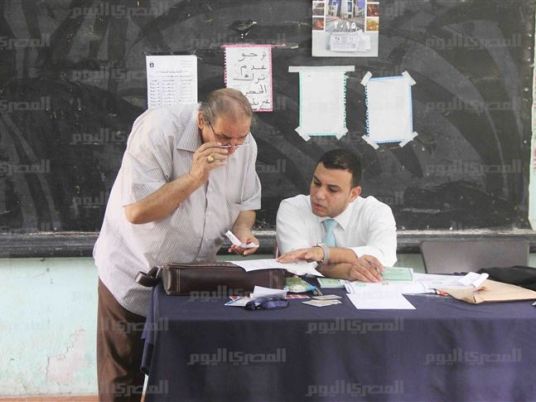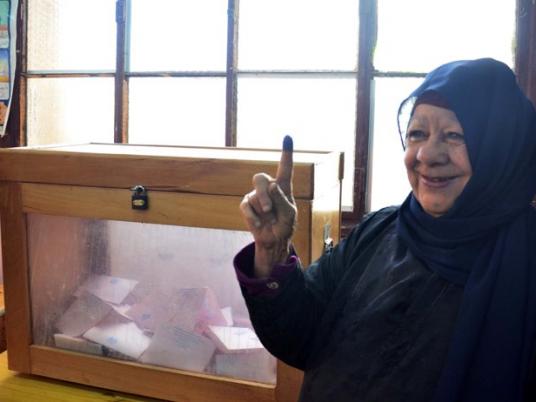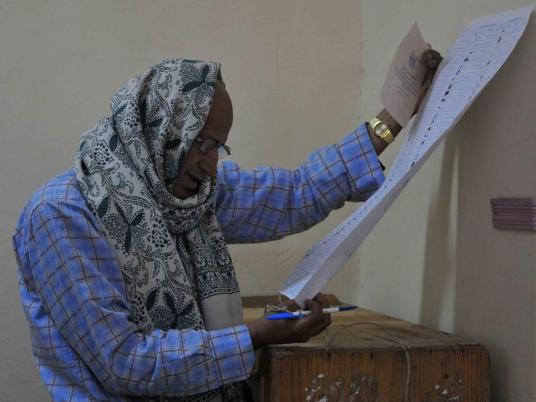
Turnout was so low in the first round of Egypt's parliamentary elections, that satirist Bassem Youssef derided it as an ingenious strategy to show the world Egypt had rid itself of its notorious overcrowding.
Empty polling stations highlight disillusionment with Egypt's chaotic political transition but could have the surprise effect of bolstering President Abdel Fattah al-Sisi's authority by suggesting that, four years after they revolted against one-man-rule, Egyptians still look to the presidency as the main seat of power.
Voting in the first of two election rounds took place on Sunday and Monday but lack of interest from voters, even many who support the former general, could be interpreted as a green light to consolidate his own rule.
"This adds to his mandate and takes away from that of the parliament. This is part of this depoliticalisation process within which Sisi rose to power. All in all, I don't think he is a loser from what happened," said Amr Adly, non-resident scholar at the Carnegie Middle East Centre.
When the Tahrir Square uprising ended Hosni Mubarak's 30-year rule in February 2011, critics likened him to a modern-day pharaoh, lamenting the series of strongmen that have risen from the military since 1952 to lead the most populous Arab country.
The democratic transition was meant to widen political participation, increase oversight of the presidency and ensure Egyptians would never be ruled by one man again.
Fast forward 16 months and the first freely-elected main chamber, then dominated by the Muslim Brotherhood, was dissolved by a court order, leaving Egypt without a parliament ever since.
As military chief, Sisi ousted President Mohamed Morsi, a Brotherhood member, a year later, in 2013, after mass protests against his year in office. He banned Egypt's oldest Islamist movement and launched the bloodiest crackdown on dissent in its modern history.
Sisi won backing for Mursi's ouster from other opposition forces with a roadmap to democracy that promised parliamentary elections in six months. But critics say Egypt lost its way when it decided to hold presidential elections first, putting Sisi rather than parliament in control of the democratic transition.
In the absence of a parliament, Sisi has wielded legislative power, passing several hundred laws by decree, including some that curb the right to protest and widen the remit of military courts. The new legislature is required by the constitution to approve this within two weeks, putting pressure on lawmakers to rubber stamp the lot to avoid a constitutional crisis.
Official figures have yet to be published for this week's poll, and another round of voting takes place on Nov. 22-23. But a low turnout could leave the legislature, whatever its makeup, without a popular mandate to overturn Sisi's laws.
Sisi won 97 percent of the presidential vote in mid-2014 with an official turnout of 47.5 percent after elections were extended to a third day following a slow start.
"If parliament comes into session with such a low turnout, the authorities could claim it would never have popular legitimacy comparable to Sisi's," said H.A. Hellyer, Associate Fellow at the Royal United Services Institute in London.
"Parliamentary elections were never a priority… They have to take place, but this political dispensation was always more interested in the presidential and constitutional votes."
Still-born parliament
Approved by popular referendum in early 2014 — after Morsi's ouster but before Sisi won a presidential vote — Egypt's constitution envisages the transition leading to a semi-presidential system with an empowered parliament.
On paper, Egypt’s new legislative chamber has the authority to impeach the president, question the prime minister and withdraw its confidence in him. It must approve all laws.
Yet ahead of elections, speculation was rife that the new parliament would revise the constitution to curb some of those powers and hand prerogatives back to the presidency. Any constitutional change would have to be approved by popular referendum.
Nevertheless, a low turnout could bolster politicians who have suggested rolling back the remaining accomplishments of the 2011 revolt.
With the main opposition Muslim Brotherhood branded a terrorist organisation and its leaders in jail alongside youth activists at the forefront of the 2011 revolt, ballot papers offered voters a multitude of names but little genuine choice.
The legislature will comprise 568 elected members – 448 entering as individuals and 120 through winner-takes-all lists.
Critics say the emphasis on individuals makes it more likely for figures with cash and connections to dominate, much as they did under Mubarak. Indeed many members of Mubarak's now-defunct National Democratic Party (NDP)are campaigning once more.
Brotherhood supporters have boycotted, as have many secular government critics. A list of liberal and socialist parties that would have been the main opposition choice eventually withdrew, leaving the field dominated by Sisi loyalists.
Preliminary results suggest For the Love of Egypt, a loyalist coalition led by a former intelligence officer, has already picked up 60 list seats.
The lack of interest, particularly from young people who comprise the majority of Egypt's population, contrasted with the long queues of the 2011-12 polls that followed Mubarak's exit from power. Polling centres were also busier during the constitutional referendum and the presidential vote.
So uninspired were younger voters that #badalmatantakhib or #insteadofvoting trended on Twitter, with users posting Tweets such as: "Don't waste your time, you can use these two hours to learn how to make macaroni and bechamel sauce."
Others said voting in repeated elections since 2011 had made little difference to lives dogged by inflation and joblessness.
On his Twitter feed, comedian Youssef poured scorn on the government in a series of quips: "For the fourth year voters are threatened with a 500-pound fine for not voting. It's the only source of income they have left."




